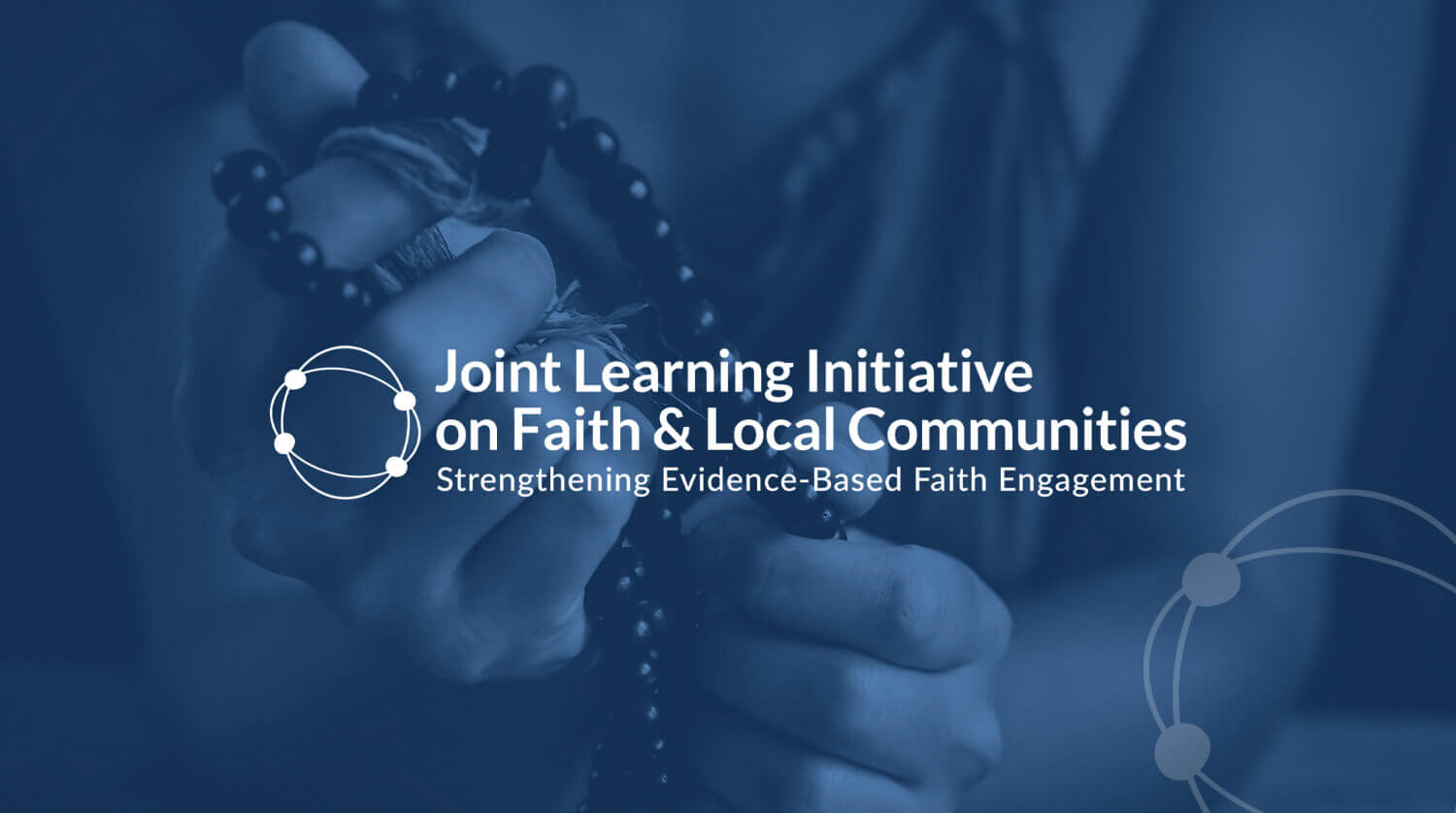On May 21, 2019, JLI held a webinar on faith-based climate programs. This is the second webinar of a four part series that is structured around the domains in which JLI aims to draw from and have an impact: practice, policy, and academia.
Dr. Olivia Wilkinson, JLI Director of Research moderated the webinar.
Speakers:
Leo Dee: Project Coordinator for Eco Tourism and Eco Bible Commentary, The Interfaith Center for Sustainable Development
- Presentation: Interfaith Sustainability in Practice Access Gap [4.12 -16.34]
- Overview of interfaith programs at the Interfaith Center for Sustainable Development. Micro: Women educators- Sustainability for the classroom, Meso: Renewable Energy through Solar panels with Anglican communities in Rwanda, Macro Sustainability & water systems in Jeruselum
Rev Fletcher Harper: Executive Director, GreenFaith
- Presentation: GreenFaith Interfaith Partners for the Environment [17.28 -28.16]
- Introduction to Greenfaith, seminary initiative to integrate environmental issues into religious leaders’ education and training, religious teachings resources
Dr. Iyad Abumoghli: Principal Advisor, UN Environment
- Presentation: Faith for Earth Initiative [29.08]
- Why we need a transformational revolution – strategic goals of Faith for Earth Initiative and examples of FBO involvement
Please register for the upcoming webinars on June 18 and July 23, 2019.
Background
In October 2018, the UN’s Intergovernmental Panel on Climate Change (IPCC) published a special report on Global Warming of 1.5˚C, which is predicted by 2030-2052 which is predicted by 2030-2052. This warming will cause sea level rise, drought, and other effects that will have impacts on people worldwide. The effects will be even more severe if there is global warming of 2˚C. There is an urgent need to curb anthropogenic emissions that are causing these long-lasting effects on the earth’s climate system.
Local faith communities are already heavily impacted by climate change. They are also increasingly involved in the action on climate change, bringing religious motivations to understandings of stewardship and care for our planet. Faith-based NGOs are working to mitigate climate change, help climate change adaptation in communities, and mobilize and faith communities towards advocacy for change, as well as implementing climate-sensitive ways of operating in their humanitarian and development operations. Yet much remains to be done in the humanitarian and development fields where the climate is frequently acknowledged as one of the most pressing issues of our time but little has changed from the status quo.
JLI is an international collaboration committed to convening academics, practitioners, and policymakers to examine the research and evidence on the role of religion in humanitarian and development aid. In the past year, many members have asked us to consider topics such as climate change, climate justice, the environment, and ecology as future interests for a possible Learning Hub.
We recognize that there is already a lot of work and research in the area of faith and climate. We believe that the JLI’s convening mechanisms can offer added value by focusing in on the specific intersections of climate, faith-based international humanitarian and development work, and a focus on research and evidence.






